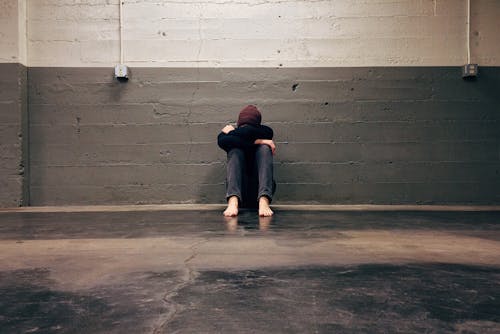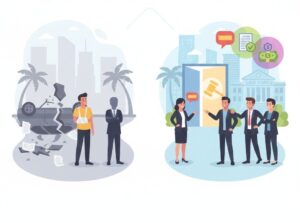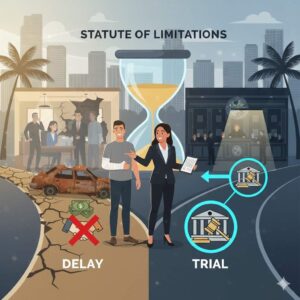Motorcycle riders are far more likely than their car-driving counterparts to get into an accident. Everyone, especially those who ride, knows that riding can be dangerous and how important it is to do everything you can to protect yourself on the road and ride defensively. If you ride long enough, you will likely get into an accident or fall of your bike at some point.
Many people who do not ride cannot understand why those who do ride continue to do so. Although for some, it is more of a hobby or simply an easy mode of transportation, for many, it is truly a lifestyle and an identity. This is exactly why it can feel so confusing that it can be really scary to get back on your bike that first time after an accident.
Even though we all know this is a part of riding and it comes with the territory, and even if your accident was minor and you were lucky to walk away unscathed, an accident still has the capacity to completely drain a rider’s confidence and tempt them to put away the bike for good.
Many people underestimate the mental and emotional tolls an accident can cause, and these are every bit as important as a physical injury. Do not let an accident prevent you from being mentally prepared to ride – read on to learn our tips on how to deal with your head game after a wreck.

Managing PTSD
Post-Traumatic Stress Disorder (PTSD) is a mental health disorder that develops after someone has seen or experienced a scary, dangerous, or shocking event experienced as trauma. Many people associate this disorder with veterans of war, but it can happen to anyone who has experienced a traumatic event, such as a motorcycle accident, which often could have been life-threatening.
While it is very normal for people to experience some kind of reaction to a traumatic event, most people will recover from these initial reactions naturally. However, PTSD symptoms can linger well past the event itself, typically beginning within three months of the accident. Common symptoms include:
- Nightmares: A nightmare once in a while is normal, but bad dreams that keep you up frequently, or even multiple times a night, are a sign of something deeper going on.
- Flashbacks: A flashback is when a person re-experiences the memory of a past traumatic event as if it is happening again in the present. Certain things may trigger the flashback, such as a smell, sound, or sight. A news report about an accident or the sound of a car breaking suddenly are examples of triggers that could send someone into a negative spiral. There are often associated physical symptoms as well, such as sweating and a rapid pulse.
- Lack of Interest: Unsurprisingly, PTSD can cause an aversion to the thing that is most closely associated with the trauma. Even someone whose entirely life was centered around their motorcycle could completely lose interest in anything motorcycle-related. Sometimes, an afflicted person will lose interest in something seemingly unrelated to the trauma. For example, if you used to treat yourself to a burger at your favorite restaurant after a ride, you may associate that restaurant, or even just burgers in general, with the accident and will not want one for a long time after.
- Increased Anxiety: Even if you are not actively thinking about the accident, your brain is still taking time to process the events, and you can be suspended in a state of heightened anxiety for a while. Even though the immediate danger has subsided, your body and mind are still in a state of alert and stress.
- Hyperarousal: This symptom manifests as a constant state. You may feel on edge, stressed, or angry. This can cause disruptions in your daily life and can lead to difficulties with sleeping, changes in eating habits, or trouble with concentrating.
If these symptoms cause a significant disruption to your professional or personal life and persist for longer than three months, it is time to seek guided help from a mental health professional. You do not have to suffer, and there are many treatments that can help you manage the symptoms of PTSD.
Preparing for Your First Ride After an Accident
If you are determined to get back on your bike after a harrowing experience, there are measures you can take to ensure you are in the best headspace possible to ride. Even if you do not develop a long-term disorder, there are many mental blocks that can get in the way of your enjoyment of riding after an accident. Many riders experience a loss of confidence, but some precautions can help you avoid a bad first ride back.
- Be Free of Injury: This step means that you are both physically and mentally ready to ride again. It may be a good idea to have your doctor clear you for riding again and to warn you of ant precautions you should take as you ease back into things. Hopping back on your bike when you are not fully healed could result in even longer time off your bike. You need to have patience with your mental health as well. Getting back to riding before you are ready will not be an enjoyable experience, so give yourself more time if you need it.
- Inspect Your Gear and Bike: If you are using the same gear or bike that you used during your accident, make sure you give it a thorough inspection before using it again. Even if your bike appears to only have sustained minor damage, it is a good idea to take it to a mechanic for a full inspection, especially if you are not familiar with bike repair. You should also carefully examine your safety gear for any serious damage. If your bike or gear are in poor shape, you should strongly consider replacing them. If you upgrade your bike, consider one with improved features, such as ABS brakes. As for your gear, take note of how well each piece protected you during the accident. If anything was lacking, invest in a better piece of safety equipment for next time.
- Take It Slow: Your first ride after an accident does not have to be long or epic. Ease yourself back into things slowly. Instead of hitting the open road right away, take your bike for a practice spin in an empty parking lot and get reacclimated. You might even take a riding course as a safety refresher. When you are ready to ride on the road again, go for a short, easy route somewhere that you are very familiar with. Ride in good conditions and try to avoid the scene of your accident if possible.
- Do Not Ride Alone: Ask another friend who rides to join you when you are first easing back into riding. A familiar face of someone you trust can be reassuring as you get your confidence back. Riding with a partner can also add another layer of safety to your ride.
The mental consequences of an accident are often overlooked, but they can be just as damaging as a physical injury. If you were involved in a motorcycle accident, it is important to get legal advice right away to ensure you are properly compensation. For a no-obligation consultation about your case, contact the Law Offices of Kirshner, Groff, and Diaz to be put in touch directly with a lawyer.



